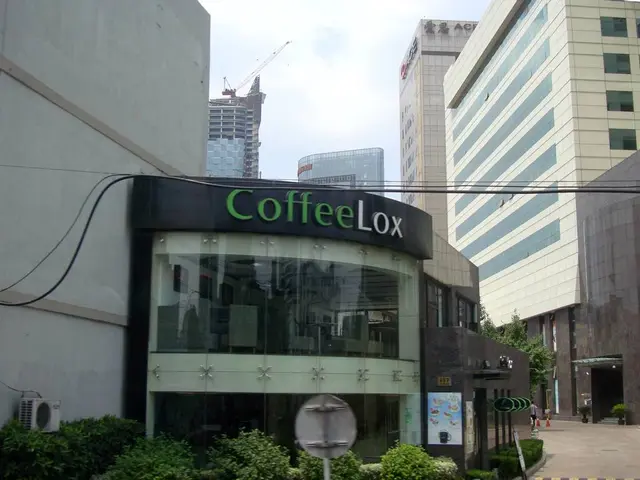Wholesale payments receive potential support from the Bank of England with the introduction of stablecoins
The Bank of England (BoE) has unveiled plans for a new consultation on the UK’s systemic stablecoin regime, following the release of a Discussion Paper on systemic retail stablecoins in November 2023[1][3]. This regulatory framework aims to manage stablecoins that are significant to the financial system, working alongside the Financial Conduct Authority’s (FCA) existing consultation for non-systemic stablecoins.
Key aspects of the proposed regulatory outlook and future plans include:
- Holding limits for systemic stablecoins: The BoE is considering setting temporary limits on the amount of stablecoins that individuals and businesses can hold to minimise risks to financial stability. Suggested limits are approximately £10-20k per individual and £10 million per business[1][3].
- Backing asset remuneration: The BoE is open to allowing a portion of the backing assets for stablecoins to be invested in High Quality Liquid Assets (HQLA) to encourage innovation while preserving confidence in stablecoins[3].
- Role in wholesale payments and innovation: The BoE sees stablecoins as potentially playing a role in innovation, including within the Digital Securities Sandbox it operates, though specifics are yet to be disclosed[1].
- Caution about bank-issued stablecoins: Bank of England Governor Andrew Bailey has expressed concerns about large banks issuing stablecoins, advocating instead for tokenized deposits, which support traditional banking and lending activities[2].
- Regulatory fragmentation concerns: There is a risk of inconsistent regulation between UK-issued and non-UK-issued stablecoins circulating in the UK, potentially leading to an uneven playing field and consumer confusion[4].
In addition, the BoE is exploring ways to integrate stablecoins and tokenized deposits with blockchain infrastructure, ensuring security and regulatory compliance[2]. The bank's openness towards these technologies could lead to significant transformations in wholesale markets.
The BoE emphasises the importance of stability and prudence, particularly discouraging banks from stablecoin issuance in favour of tokenized deposits[2]. A formal consultation with detailed rules is expected soon, with ongoing industry engagement[1][3][2].
[1] Bank of England (2023). Discussion Paper on the regulatory approach to systemic retail stablecoins. Retrieved from https://www.bankofengland.co.uk/-/media/boe/files/quarterly-bulletin/2023/march/discussion-paper-on-the-regulatory-approach-to-systemic-retail-stablecoins.pdf
[2] HM Treasury (2023). Speech by Andrew Bailey, Governor of the Bank of England, at the FSB Global Network Meeting. Retrieved from https://www.gov.uk/government/speeches/speech-by-andrew-bailey-governor-of-the-bank-of-england-at-the-fsb-global-network-meeting
[3] Bank of England (2023). Bank of England consults on the UK’s systemic stablecoin regime. Retrieved from https://www.bankofengland.co.uk/news/2023/april/bank-of-england-consults-on-the-uks-systemic-stablecoin-regime
[4] Financial Conduct Authority (2023). Policy Statement on Cryptoassets: Regulation of Cryptoasset Activities. Retrieved from https://www.fca.org.uk/publications/policy-statements/ps23-16-policy-statement-cryptoassets-regulation-cryptoasset-activities
- The Bank of England's regulatory framework for systemic stablecoins, as outlined in their consultation, includes holding limits to minimize risks to financial stability, with proposed temporary limits of £10-20k per individual and £10 million per business, demonstrating their concern for safety and finance within the business sector.
- In addition to managing stability, the Bank of England is open to the potential role of stablecoins in technology-driven innovation, such as within wholesale payments and the Digital Securities Sandbox, while expressing caution about bank-issued stablecoins and exploring ways to integrate them with blockchain infrastructure, thus demonstrating their forward-looking approach in the Financial Technology (Fintech) landscape.




